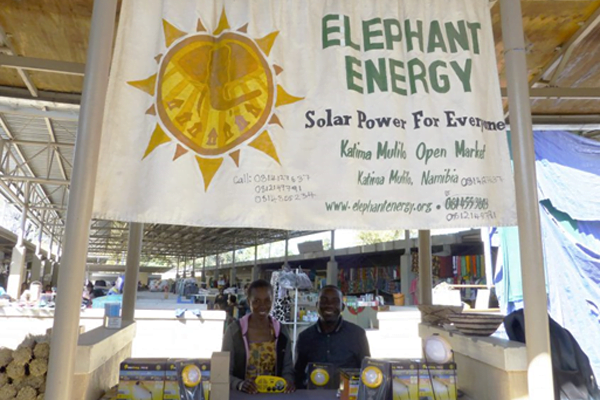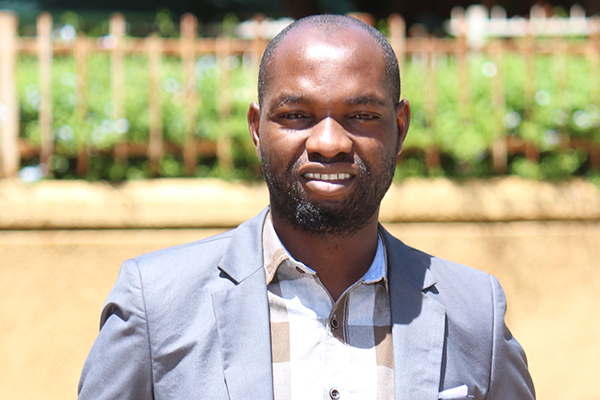
Elephant Energy Trust Delivers Solar Products in the Vastly Spread Out Namibian Market
Namibia has the lowest population density in Africa with only three inhabitants per square kilometer. In such a vast country with long distances it is both technically challenging and economically unviable to extend the grid to cover the dispersed villages. As a result, only 15% of the rural households are connected to the grid, and the demand for modern off-grid energy technology is unquestionable.
A social enterprise Elephant Energy Trust (EET) has been distributing solar products throughout rural Namibia to the hard-to-reach customers since 2008. In 2015 EET received EEP S&EA grant to help leverage innovative, pay-to-own solar lantern/charger technology and work towards commercial sustainability.
The EEP funding was aimed to support the development of an innovative inventory management system, expansion of distribution throughout rural Namibia, creation of a national awareness and marketing campaign, impact assessment and the development of sound strategy for EET to reach self-sustainability.
In Namibia, where the rather small market is geographically spread out, Elephant Energy Trust sales team has done a persistent and good job. During the two-year EEP project EET has sold nearly 5,000 solar PV products (mostly solar lanterns) and created important employment opportunities reaching the most remote areas of the country. Elephant Energy Trust has created seven full-time positions and 30 part-time positions for Sales Agents who are actively engaged in sales operations. Over 50% of the new staff is women, proving the organization’s commitment to gender equality and women’s economic empowerment.
The greatest challenge with the low population density is that reaching new customers in areas where they live requires sales agents to travel long distances and thus pay additional transportation costs which cut in to their profit. One strategic solution to improving effectiveness of the sales agents was to focus on selling products also in urban population centers via larger chain stores and open market stalls, which are also semi-frequently visited by the customers from the remote rural areas.
During the project Elephant Energy Trust completed an in-country customer survey to better understand the energy use and saving practices of households, and assess the performance of the products they distribute. In particular, EET was interested in the impact its technologies have on customer’s savings and how customers use their extra hours of light each day. This sales and impact data is collected on a monthly basis and it enables EET to get a good sense of the scale and impact of its efforts.
According to EET’s estimates there are nearly 300,000 households without electricity that are accessible in Elephant Energy’s existing regions of operations. The EEP grant supported EET to test and demonstrate their model and to seek for follow-on financing. To assist in reaching those households, EET has also secured almost 400,000 Euros of funding from the European Union. This two-year “The Namibia Rural Energy Access Plan” project focuses on strengthening and expanding the market for solar technologies, and addressing the energy needs of a projected 32,900 people through the sale of lanterns and home systems.
Marketing for the clean energy transition
Profile of Precious Vuma, Business Development and Marketing Manager at Powerlive ...
Using innovation to provide access to clean energy
Profile of Felix Boldt, Founder and CEO of Solarworx - Zambia...
Building a Start-up at the Nexus of Energy and Food
Profile of Admore Chiumia, Founder of Green Impact Technologies - Malawi...





